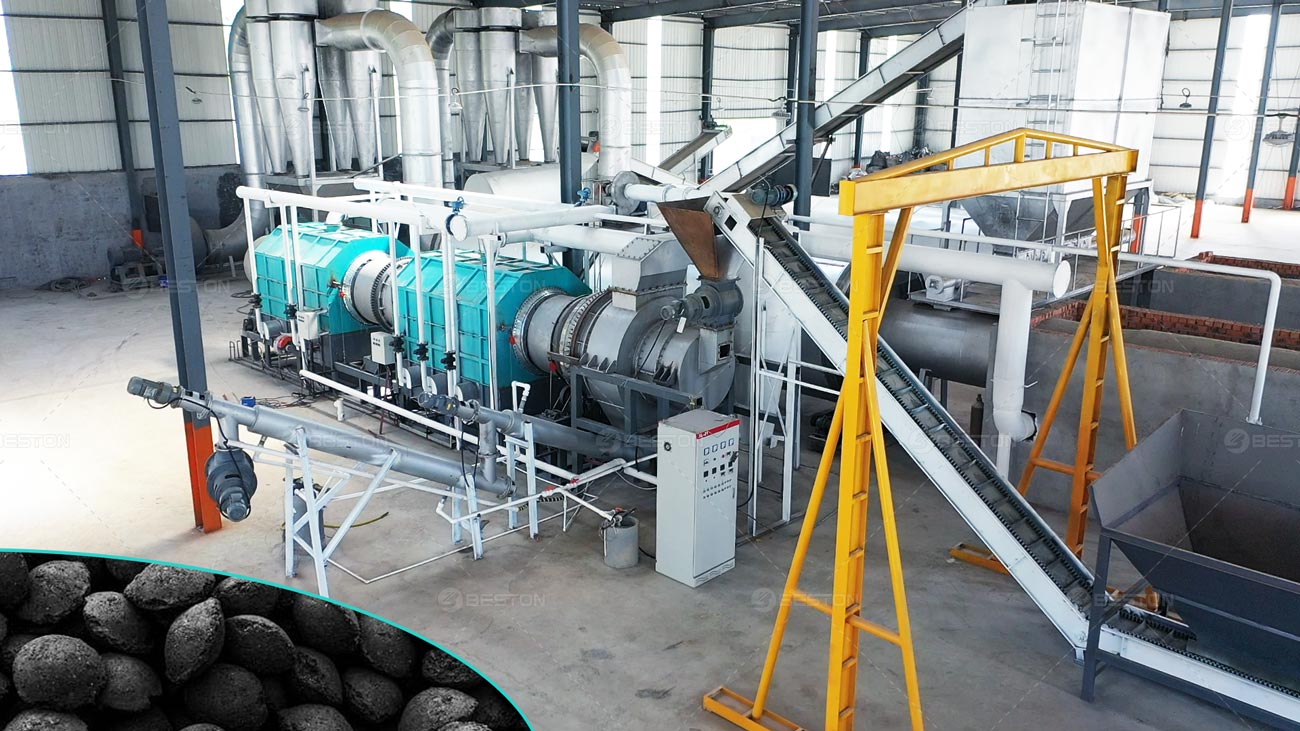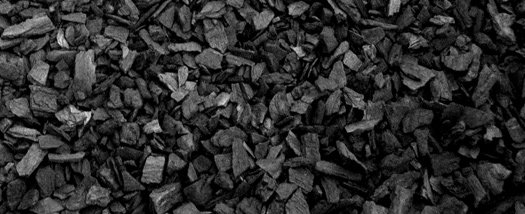Wood Charcoal Making Machine: A Sustainable Approach to Waste Management and Energy Production
In the quest for sustainable development and efficient waste management, the conversion of biomass into valuable resources has emerged as a crucial solution. Among the various biomass conversion technologies, wood charcoal making machines stand out due to their ability to transform waste wood into high-quality charcoal. This blog explores the features, benefits, and operational aspects of wood charcoal making machine, highlighting their importance in modern waste management and energy production.
Understanding Wood Charcoal Making
Wood charcoal making, also known as carbonization, is a process that involves the thermal decomposition of wood biomass at high temperatures in the absence of oxygen. This process produces charcoal, a valuable fuel and industrial material, along with by-products such as wood vinegar, tar, and syngas. The charcoal produced through this method is known for its high calorific value and low ash content, making it an excellent alternative to conventional fossil fuels.
Key By-Products of Wood Charcoal Making
- Charcoal: The primary product of the carbonization process, wood charcoal, is used as a fuel for cooking and heating, as well as in various industrial applications, including metallurgy and the production of activated carbon.
- Wood Vinegar: Also known as pyroligneous acid, wood vinegar is used in agriculture as a natural pesticide and soil conditioner. It also has applications in the pharmaceutical and chemical industries.
- Tar: Wood tar is a viscous liquid that can be used in the production of chemicals, preservatives, and waterproofing agents.
- Syngas: The gas produced during carbonization can be used as a source of energy for heating the carbonization reactor or can be converted into electricity.

Features and Benefits of Wood Charcoal Making Machines
Wood charcoal making machines are designed to efficiently convert waste wood into valuable charcoal and by-products. Here are some key features and benefits of these machines:
Advanced Technology
Modern wood charcoal making machines are equipped with advanced technology that ensures efficient and environmentally friendly operation. The biomass pyrolysis machine features fully enclosed and continuous operating systems that minimize human intervention and maximize automation. Advanced temperature control systems ensure optimal operating conditions, resulting in higher yields of charcoal and by-products.
Energy Efficiency
Energy efficiency is a critical aspect of wood charcoal making machines. These machines are designed to utilize the syngas produced during the carbonization process to heat the reactor, reducing the need for external energy sources. This self-sustaining energy system not only lowers operating costs but also minimizes the machine’s carbon footprint.
Environmental Compliance
Wood charcoal making machines are designed to meet stringent environmental regulations. They are equipped with advanced emission control systems that ensure minimal release of pollutants. These systems include dust removal, water spray, and activated carbon adsorption, ensuring that the carbonization process is environmentally friendly and compliant with local and international standards.
Versatility
One of the standout features of wood charcoal making machines is their versatility. These machines can process various types of biomass, including wood, sawdust, bamboo, coconut shells, and agricultural waste. This flexibility makes them suitable for various waste management scenarios, from small-scale operations to large municipal waste processing facilities. The palm kernel shell charcoal also can be get with the machine.
Comprehensive Support and Maintenance
Reputable manufacturers of wood charcoal making machines offer comprehensive after-sales support and maintenance services to ensure the smooth operation of their machines. This includes installation, training, and ongoing technical support. A commitment to customer satisfaction ensures that any issues are promptly addressed and the machine operates at optimal efficiency.
Economic Viability
Investing in a wood charcoal making machine can be economically viable due to the revenue generated from the sale of charcoal and by-products such as wood vinegar and tar. Additionally, the reduction in disposal costs and the potential for carbon credits make these machines an attractive investment. The advanced technology and energy-efficient design further enhance the machine’s profitability.
Operational Aspects of Wood Charcoal Making Machines
Understanding the operational aspects of wood charcoal making machines is crucial for potential investors and operators. Here’s a detailed look at the process and key components involved:
Feedstock Preparation
The first step in the carbonization process is the preparation of the feedstock. Waste wood and other biomass materials are shredded into smaller pieces to facilitate efficient thermal decomposition. This pre-treatment step ensures that the biomass is evenly heated during the carbonization process, resulting in higher yields and better quality charcoal.
Carbonization Reactor
The heart of the carbonization process is the reactor, where the thermal decomposition of the biomass takes place. Modern reactors are designed to operate at high temperatures in the absence of oxygen, ensuring complete decomposition of the biomass. These reactors are equipped with advanced temperature control systems that ensure optimal operating conditions and maximize the yield of charcoal and by-products.
Condensation System
The gases produced during the carbonization process of the Beston charcoal making machine are passed through a condensation system, where they are cooled and condensed into wood vinegar and tar. Efficient condensation systems are crucial for maximizing the yield of these valuable by-products. The remaining non-condensable gases are utilized to heat the reactor, creating a self-sustaining energy system.
Emission Control
Wood charcoal making machines are equipped with advanced emission control systems that ensure minimal environmental impact. These systems include dust removal, water spray, and activated carbon adsorption, which effectively remove pollutants from the exhaust gases. The result is a clean and environmentally friendly operation that complies with stringent environmental regulations.
By-Product Collection
The by-products of the carbonization process, including wood vinegar, tar, and syngas, are collected and processed for further use. Efficient separation and collection systems ensure high purity and quality of these by-products. The collected by-products can be sold or utilized in various industrial applications, generating additional revenue for the machine operator.

Leading Suppliers of Wood Charcoal Making Machines
Several companies specialize in the manufacturing and supply of wood charcoal making machines. Some of the leading suppliers include:
1. Beston Group
Beston Group is a renowned manufacturer of waste recycling equipment, including wood charcoal making machines. Their machines are known for their high efficiency, advanced technology, and compliance with environmental standards. Beston offers a range of charcoal making machines with different capacities to cater to various business needs.
2. Kingtiger Group
Kingtiger Group is another prominent supplier of wood charcoal making machines. Their machines are designed for high efficiency and low emissions, making them an environmentally friendly option for waste management. Kingtiger provides comprehensive after-sales support and maintenance services, ensuring reliable operation.
3. Shuliy Machinery
Shuliy Machinery specializes in the production of charcoal making machines. Their machines are designed to be energy-efficient, environmentally friendly, and capable of processing various types of biomass. Shuliy Machinery offers customized solutions to meet specific business requirements.
4. ABC Machinery
ABC Machinery is a leading provider of biomass energy solutions, including wood charcoal making machines. Their machines are known for their robust design, high efficiency, and compliance with environmental standards. ABC Machinery provides comprehensive support and maintenance services to ensure optimal operation.
Conclusion
Wood charcoal making machines represent a significant advancement in the field of waste management and energy production. By transforming waste wood and other biomass into valuable charcoal and by-products, these machines offer an eco-friendly and economically viable solution to the global waste problem. The advanced technology, energy efficiency, environmental compliance, and comprehensive support provided by leading manufacturers make these machines a top choice for businesses and municipalities worldwide.
Investing in a wood charcoal making machine is not only a step towards sustainable waste management but also a profitable business opportunity. With the ability to process a wide range of biomass materials and generate valuable by-products, these machines offer a practical solution to the challenges of waste disposal and energy production. As the world continues to focus on sustainability and the circular economy, wood charcoal making machines are poised to play a crucial role in shaping a cleaner and more sustainable future.